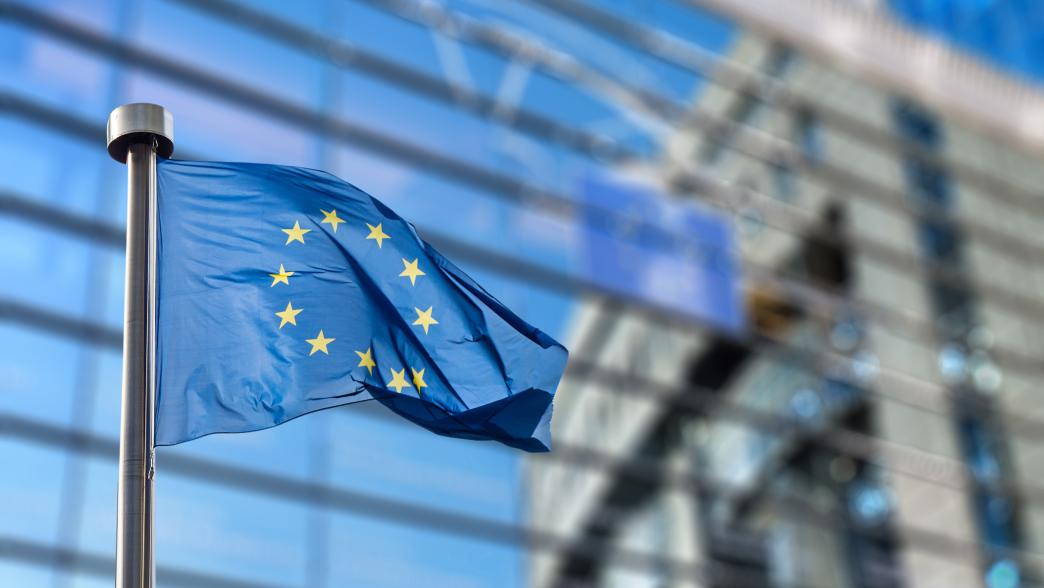UK–EU future relationship: the EU’s role
What role will the EU institutions play in the UK–EU future relationship negotiations?

The information in this explainer details the situation at the time of publication and does not reflect possible recent developments.
Which EU institutions are involved in UK–EU future relationship negotiations?
Four EU institutions will play a significant role in the future relationship negotiations:
-
The European Commission is the EU’s executive body and will negotiate on behalf of the EU. It has set up a Task Force for Relations with the UK, under the leadership of Michel Barnier. This task force sits at the centre of the Commission, although it is expected to work closely with the departments for trade, the internal market, agriculture and rural development, and competition.
The European External Action Service, which has acted as the EU’s de facto foreign ministry since 2010, will be directly involved in negotiations over the future security partnership.
-
The Council of the EU represents the EU27 governments. It is where EU27 ministers meet to adopt laws and co-ordinate policies. They will also vote on the final UK–EU deal, if one is reached.
It is also where the EU27 come to a common position on Brexit. Most of the consensus building will be done by EU27 diplomats in a specialised committee focusing on UK–EU negotiations. This committee will meet with the Commission’s Task Force before and after each negotiating round.
-
The European Council The European Council gathers the heads of state and government of all 27 EU countries. They meet at least four times a year to discuss the EU’s priorities, which will include ongoing UK–EU negotiations. They might be asked to make some decisions on Brexit. For example, it was the European Council that approved extensions of the Article 50 negotiation period.
- The European Parliament is the only directly-elected EU institution comprising 705 Members of the European Parliament (MEPs) elected by citizens of the 27 member states. It will scrutinise and vote on the deal – it could also suggest amendments. It has set up a UK co-ordination group, which will meet regularly with the Commission’s Task Force.
Who decides the EU’s negotiating position?
According to EU treaties, the European Council, Council of the EU and the European Commission all have a role in informing and agreeing the EU’s negotiating position.
The European Council will agree the high-level guidelines for the negotiations; the Council of the EU will approve a more detailed technical mandate; and the Commission will carry out the negotiations. For negotiations on foreign, security and defence policy, the European External Action Service will also play a role.
The Council of the EU will need to approve the Commission’s draft mandate by qualified majority voting. It may take several meetings of the Council to agree the final mandate. Once the mandate is agreed, the Commission can begin negotiations.
How will member states’ views be represented?
Member states will have various opportunities to feed their views into the negotiation process. Bilateral meetings with the EU Council President, Charles Michel, are one way of making views clear at an early stage in the process, before negotiations begin.
During the negotiations themselves, the Commission will continue to report back to the Council of the EU, so representatives of member states will be kept informed of proceedings. One mechanism for this will be the ‘special committee’ mentioned above.
Who are the key EU leaders to watch out for in UK–EU future relationship negotiations?
- Michel Barnier: Chief EU negotiator and head of the Commission’s task force. In addition to the negotiations, he will be responsible for updating the EU27 governments, the European Commission and the European Parliament on progress made. He will maintain regular contact with EU national and regional parliaments, business groups and civil society. He will report to the president of the European Commission.
- Ursula von der Leyen: President of the European Commission. She will be responsible for overseeing the work of the Task Force, maintaining close links with EU27 leaders and the president of the European Council.
- Josep Borrell: High representative of the Union for Foreign Affairs and Security Policy and vice-president of the EU Commission. Together with von der Leyen, he will oversee the negotiations on UK–EU security co-operation.
- Charles Michel: President of the European Council. His role will be to build bridges and common EU27 positions.
- David McAllister: German MEP and head of the European Parliament’s UK co-ordination group.
- David Sassoli: Italian MEP and president of the European Parliament. He will preside over plenary events and the European Parliament’s vote on a UK–EU deal, if one is reached.
- 27 heads of state and government: might speak out on Brexit although it is EU Commission that will be negotiating on behalf of the EU.
Will EU national and regional parliaments play a role?
Possibly. In terms of negotiations, the European Commission’s Task Force will be expected to send regular updates to national parliaments. Michel Barnier travelled frequently to EU capitals to meet with parliamentarians and that is likely to continue. Some member states also require their EU ministers to give updates before parliament on EU affairs, including on Brexit.
It is unclear whether national and regional parliaments will vote on the final UK–EU deal, if one is reached. If the deal covers areas of EU and member state law, then the agreement would almost certainly require the approval of the EU27 governments, European Parliament and national (and sometimes regional) parliaments.
Will EU business groups and civil society organisations have a say?
During the withdrawal negotiations, Michel Barnier met regularly with EU business groups and civil society organisations. However, they will not play a formal role in the negotiations. They also do not have a vote over the final deal.
- Topic
- Brexit